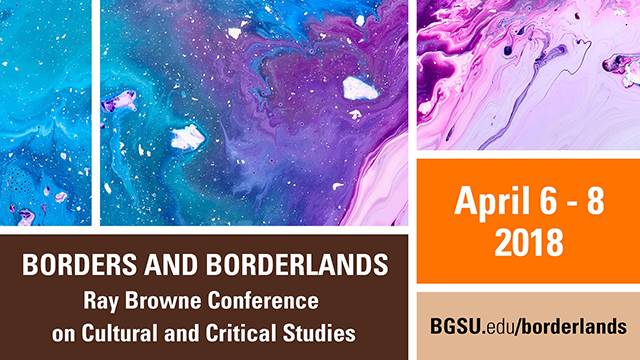
Concurrent Panel Session Four
Stage-Based Human Development Theories: Constructing and Supporting the Status Quo since the 1880s
Start Date
7-4-2018 10:30 AM
End Date
7-4-2018 11:20 AM
Abstract
In contemplating the role of borders and borderlands in American culture, the importance of social boundaries constructed between individual lives based on identity cannot be overstated. However, this presentation will examine the borders constructed within individual life. Late in the nineteenth and into mid-twentieth century, medical professionals, psychologists, and educators put forth myriad frameworks of human development, generally breaking down growth into a series of stages. The popularity of these models, which I collectively term "lifespan development theories" solidified an image of childhood and adolescence as explosive in terms of emotional and cognitive growth, alongside obvious and biological physical changes. Though each theory addresses particular aspects of growth, from sexuality to cognition to morality, all of them generally position adulthood as a sort of void of growth and development, a stable contrast to the unmoored and unpredictable youth. These frameworks have become so embedded in our cultural consciousness that this concept is rarely questioned—adulthood represents a sort of end to growth, a plateau where little changes until geriatry. I argue that these frameworks are long overdue for scholarly interrogation through the lens of culture studies, challenging the assumption that all roads lead to adulthood and that adulthood can be measured in a specific manner. Lifespan development theories, in the words of Leerom Medovoi, "name an accomplishment and a positive good;" they present "adulthood" as a norm and goal, describing and thus constructing what such an adulthood resembles. In turn, any who do not achieve this goal are cast as poorly-adjusted, stunted, or arrested. This presentation will examine the lifespan development theories of Sigmund Freud, Erik Erikson, and Jeffrey Jensen Arnett and demonstrate that far from objectively describing human development, they in fact serve to perpetuate the hegemonic dominance of white, heterosexual, middle to upper class males.
Stage-Based Human Development Theories: Constructing and Supporting the Status Quo since the 1880s
In contemplating the role of borders and borderlands in American culture, the importance of social boundaries constructed between individual lives based on identity cannot be overstated. However, this presentation will examine the borders constructed within individual life. Late in the nineteenth and into mid-twentieth century, medical professionals, psychologists, and educators put forth myriad frameworks of human development, generally breaking down growth into a series of stages. The popularity of these models, which I collectively term "lifespan development theories" solidified an image of childhood and adolescence as explosive in terms of emotional and cognitive growth, alongside obvious and biological physical changes. Though each theory addresses particular aspects of growth, from sexuality to cognition to morality, all of them generally position adulthood as a sort of void of growth and development, a stable contrast to the unmoored and unpredictable youth. These frameworks have become so embedded in our cultural consciousness that this concept is rarely questioned—adulthood represents a sort of end to growth, a plateau where little changes until geriatry. I argue that these frameworks are long overdue for scholarly interrogation through the lens of culture studies, challenging the assumption that all roads lead to adulthood and that adulthood can be measured in a specific manner. Lifespan development theories, in the words of Leerom Medovoi, "name an accomplishment and a positive good;" they present "adulthood" as a norm and goal, describing and thus constructing what such an adulthood resembles. In turn, any who do not achieve this goal are cast as poorly-adjusted, stunted, or arrested. This presentation will examine the lifespan development theories of Sigmund Freud, Erik Erikson, and Jeffrey Jensen Arnett and demonstrate that far from objectively describing human development, they in fact serve to perpetuate the hegemonic dominance of white, heterosexual, middle to upper class males.

